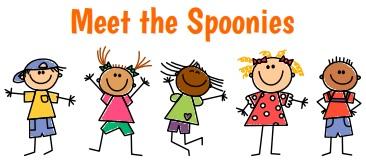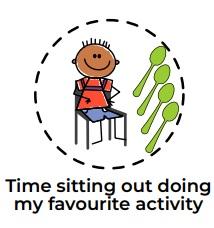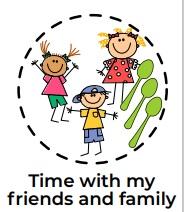
Published on: 01/10/21
The resource helps children, families and professionals understand fatigue.

Published on: 01/10/21
Living with fatigue has been brought to life by the ‘Spoonies’. The resource Spoonie Kids is being announced today at the Royal College of Occupational Therapists’ CYPF annual virtual conference ‘Strength Through Adversity’.
The Spoonies are a group of children who all live with fatigue, limiting the amount of energy they have. Spoon Theory was written and created by Christine Miserando. This theory has been adapted here (Spoonie Kids) for the use of children, young people and their families by Joanna Hunt, specialist occupational therapist at The Children’s Trust, and an interactive worksheet is freely available to download.

Joanna explains: “Activities like getting dressed or brushing our teeth may take a lot of energy after an acquired brain injury.
“In the spoon theory, a spoon represents an amount of energy. Spoonies only have a certain number of spoons per day, and have to be careful not to use more than they have otherwise they will crash.”
The resource helps professionals, and parents, work with the child to understand how they can manage their fatigue so they are better able to participate in activities, but without pushing themselves too far.
Different activities can take a different number of spoons and each day is different. Joanna says: "It varies from day to day. One day a child may wake up and feel that it's a good day for them - they might get out of bed, have breakfast and still feel they've got enough spoons to have a shower and go to school. The next day it could feel like just getting out of bed could take all the spoons they have.
"A Spoonie needs to plan, pace and prioritise how best to spend and save their spoons.”

Explaining how professionals and families can use the Spoonies resource, Joanna says: “First we think about educating and making sure everyone understands a bit more about how fatigue works.
“Next we help to identify the triggers with the child. It’s then time to think about strategies – and how we can help the child, then together we can reflect on what’s working. The resource is all about focusing on what the child ‘can’ do and not on what they can’t.” You can download the Spoonie Kids resource here and on www.spooniekids.co.uk.
If you are a professional wanting more information, please contact Joanna directly by email and she can supply the Spoonie Kids presentation and video.